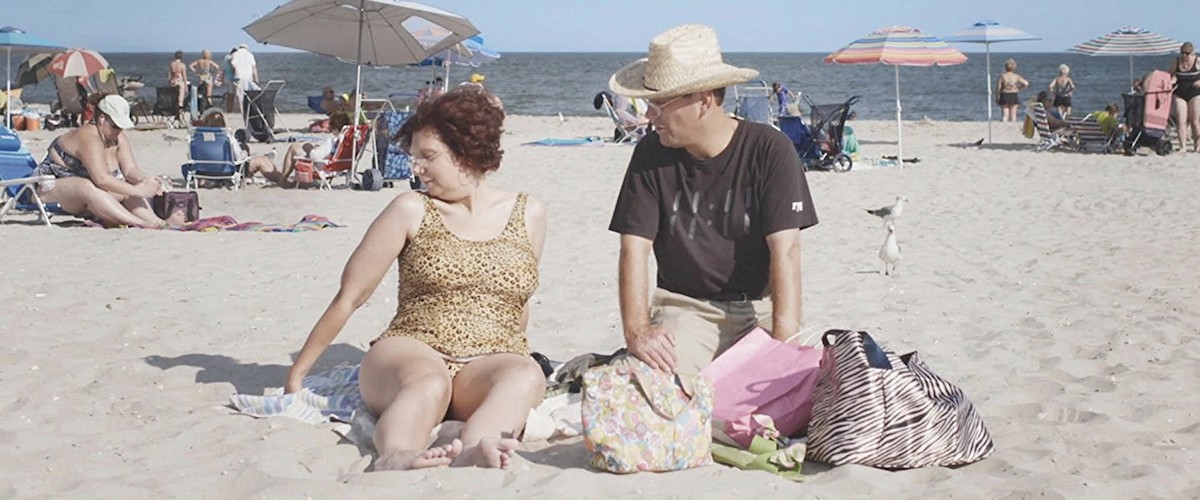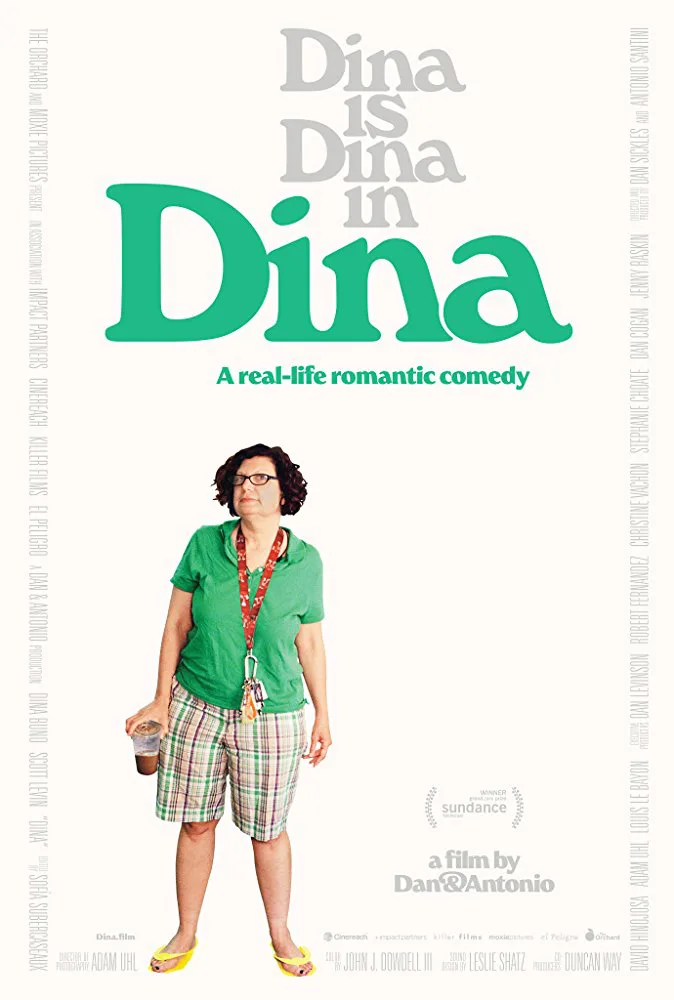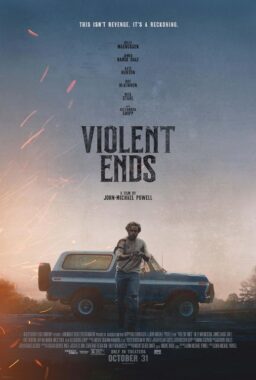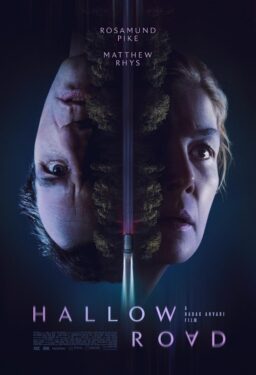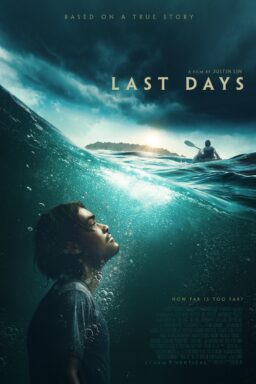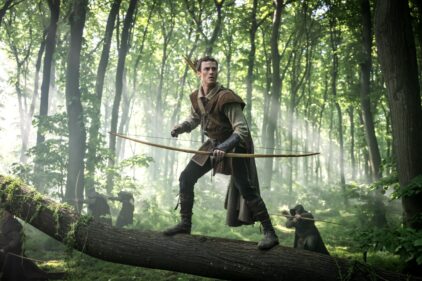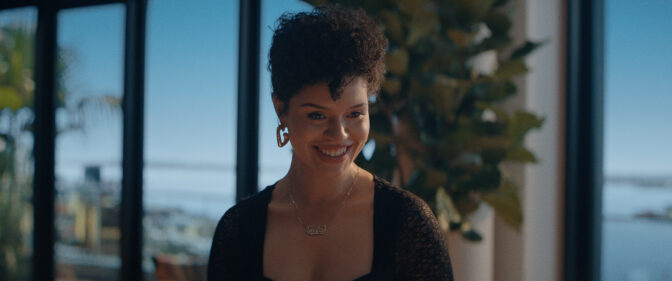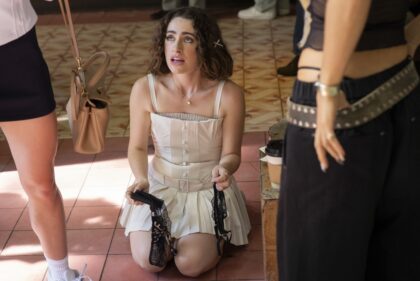“When we were first going out, I really wanted to look good for you.” “That’s sweet, honey.” “I try.”
Dina Buno and her fiance Scott Levin talk to one another in this manner, honestly and affectionately, with an almost formal observing of the niceties. It’s strangely relaxing to listen to them speak to one another, the kindness and consideration they show, the way they help one another in stressful moments. The couple—moving towards their wedding day (her second marriage, his first)—is the subject of “Dina,” a wonderful documentary co-directed by Antonio Santini and Dan Sickles.
The film doesn’t feel or look like a documentary. It’s a character-based piece, but the structure is carefully considered with a clear narrative thrust and an unusual style. “Dina” plays almost like a rom-com, where catchy tunes underscore different sequences and similar scenes are placed in juxtaposition to one another, providing a wonderful back-and-forth look at his experience as opposed to hers. The couple is at the center of a group of eccentric sidekicks, friends and family, all helping them towards the big day. There are some extremely dark moments in “Dina,” and these are even more powerful because of Santini and Sickles’ humanistic approach. Their care for Dina and Scott is clear in every frame. They don’t “set them up” so much as they set the scene in order for us to peek through the window into the characters’ world.
Both Dina and Scott come to the relationship with significant challenges. Scott has Asperger’s and lives at home with his parents. Dina lives on her own, and is developmentally disabled, with OCD, anxiety, and a “smorgasbord” (according to her hilariously deadpan mother) of other issues. The first big event in the film is Scott moving in with Dina. The camera sits in the corner of the living room as the couple talk about various things, or as they carefully work out their budget. Dina lives in a small apartment above a corner store on the outskirts of Philadelphia, and sometimes the camera is placed across the street, where we can see Dina—through her lighted windows—moving around. It’s an eavesdropping approach, but avoids being voyeuristic. These moments are frankly romantic, showing Scott walking towards the door with take-out food, as Dina bustles around through the windows up above. Scott has lived a more sheltered life than Dina, and this is a pretty intense relationship issue. On a trip to the beach, they have one of the best and most honest sex talks I’ve ever seen. “I’ve been around,” Dina informs the inexperienced Scott. She gives him a sex manual as a present and they have a frank discussion about masturbation, Dina’s need for touch, Scott’s avoidance of touch, etc. Their conversation, difficult as it is at points, has a refreshing openness.
There are revelations along the way in regards to Dina’s backstory in particular. There are multiple shots of Dina putting on a shirt, or sitting on the beach in a bathing suit. There are scars on her back. The filmmakers do not fetishize the scars, or zoom in to make sure we see them clearly, but there’s obviously a terrible story behind those scars. Dina casually references them in conversation (“Aren’t they amazing?” she says to Scott), but it’s not until later that we learn the harrowing details, overlaying a stunning shot of an empty bench on a hill, with a sunset sky slowly turning into night behind. It’s a devastating moment, coming relatively late in the film, after we have come to care about Dina deeply. “Dina” is not an overt redemption narrative, or an overt “feel-good” story about people with disabilities finding love. It’s a shared character portrait. Sickles has known Dina for some time, and her comfort in front of the camera is in part due to that relationship.
Michael Cera wrote some of the softly bittersweet music underscoring scenes, and there are also very specific songs—supremely romantic, filled with longing—placed to punctuate certain events, like Bryan Adams “Waiting for You” (Dina’s favorite song), or Yaz’s tender “Only You.” These songs create a wistful atmosphere, tying scenes together thematically and emotionally. As Dina and Scott walk hand in hand through all of the experiences—joyful and stressful—every couple faces when planning a wedding, the lyrics to another song in the film (The Seekers’ “A World of Our Own”) take on more and more poignancy and relevance:
We’ll build a world of our own that no one else can share. All our sorrows we’ll leave far behind us there. And I know you will find there’ll be peace of mind When we live in a world of our own.

